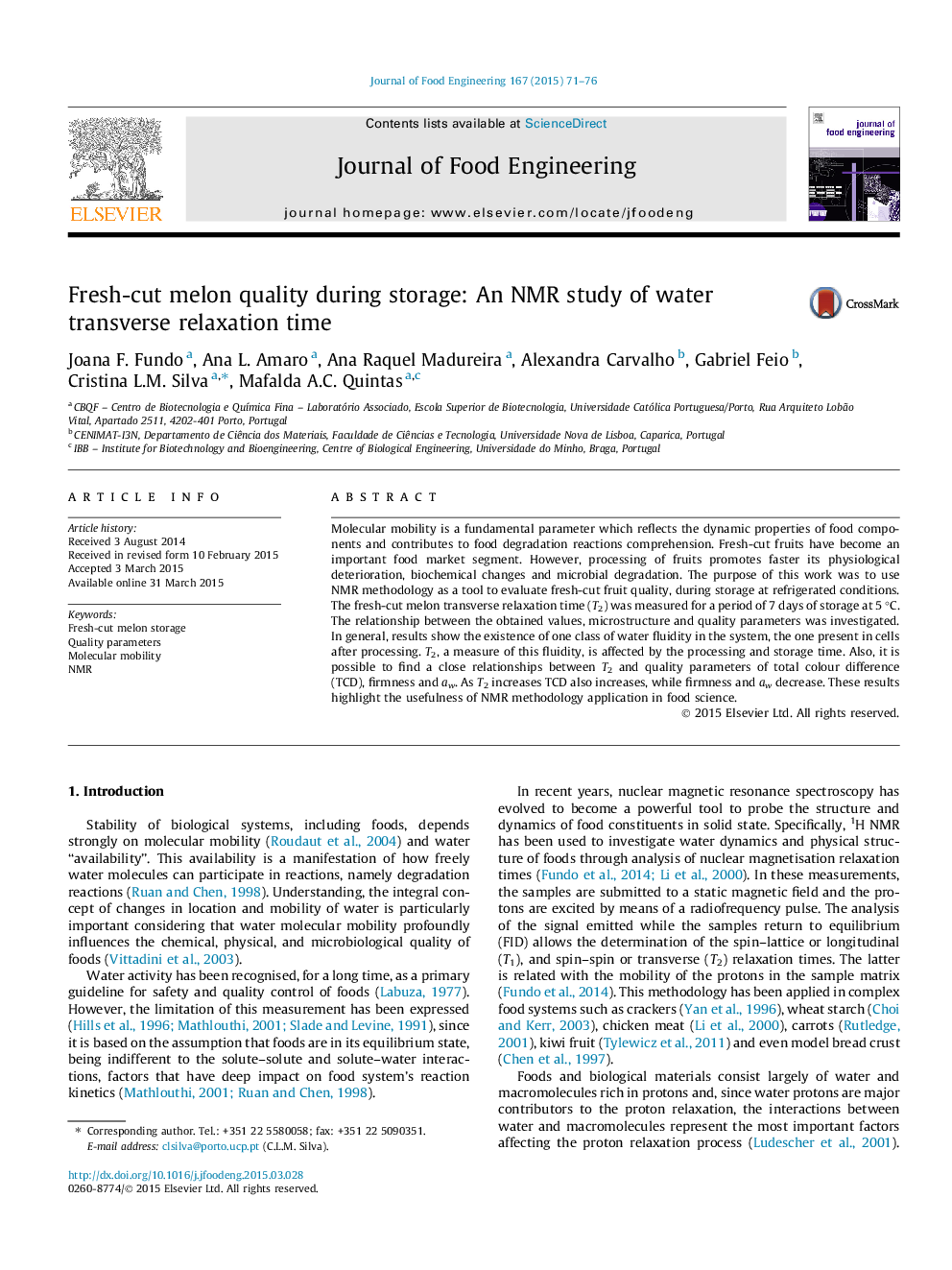| Article ID | Journal | Published Year | Pages | File Type |
|---|---|---|---|---|
| 222875 | Journal of Food Engineering | 2015 | 6 Pages |
•Melon processing/storage affects water molecular dynamics evaluated by T2.•Close relationship between T2 and quality parameters of melon along storage.•Microscope images support NMR results.•T2 determinations are relevant to understand food degradation reactions.•The usefulness of gathering NMR concept with food science was demonstrated.
Molecular mobility is a fundamental parameter which reflects the dynamic properties of food components and contributes to food degradation reactions comprehension. Fresh-cut fruits have become an important food market segment. However, processing of fruits promotes faster its physiological deterioration, biochemical changes and microbial degradation. The purpose of this work was to use NMR methodology as a tool to evaluate fresh-cut fruit quality, during storage at refrigerated conditions. The fresh-cut melon transverse relaxation time (T2) was measured for a period of 7 days of storage at 5 °C. The relationship between the obtained values, microstructure and quality parameters was investigated. In general, results show the existence of one class of water fluidity in the system, the one present in cells after processing. T2, a measure of this fluidity, is affected by the processing and storage time. Also, it is possible to find a close relationships between T2 and quality parameters of total colour difference (TCD), firmness and aw. As T2 increases TCD also increases, while firmness and aw decrease. These results highlight the usefulness of NMR methodology application in food science.
